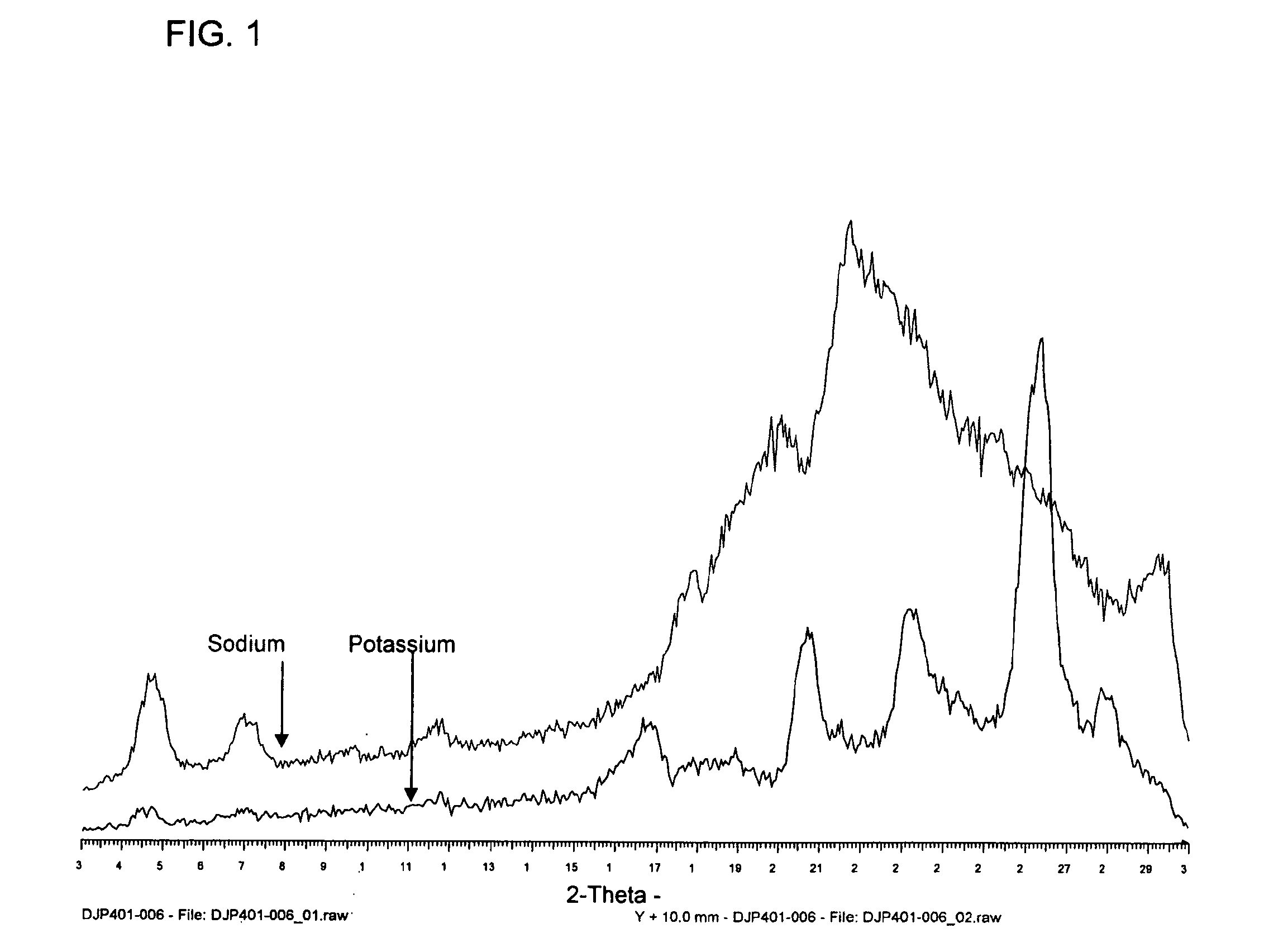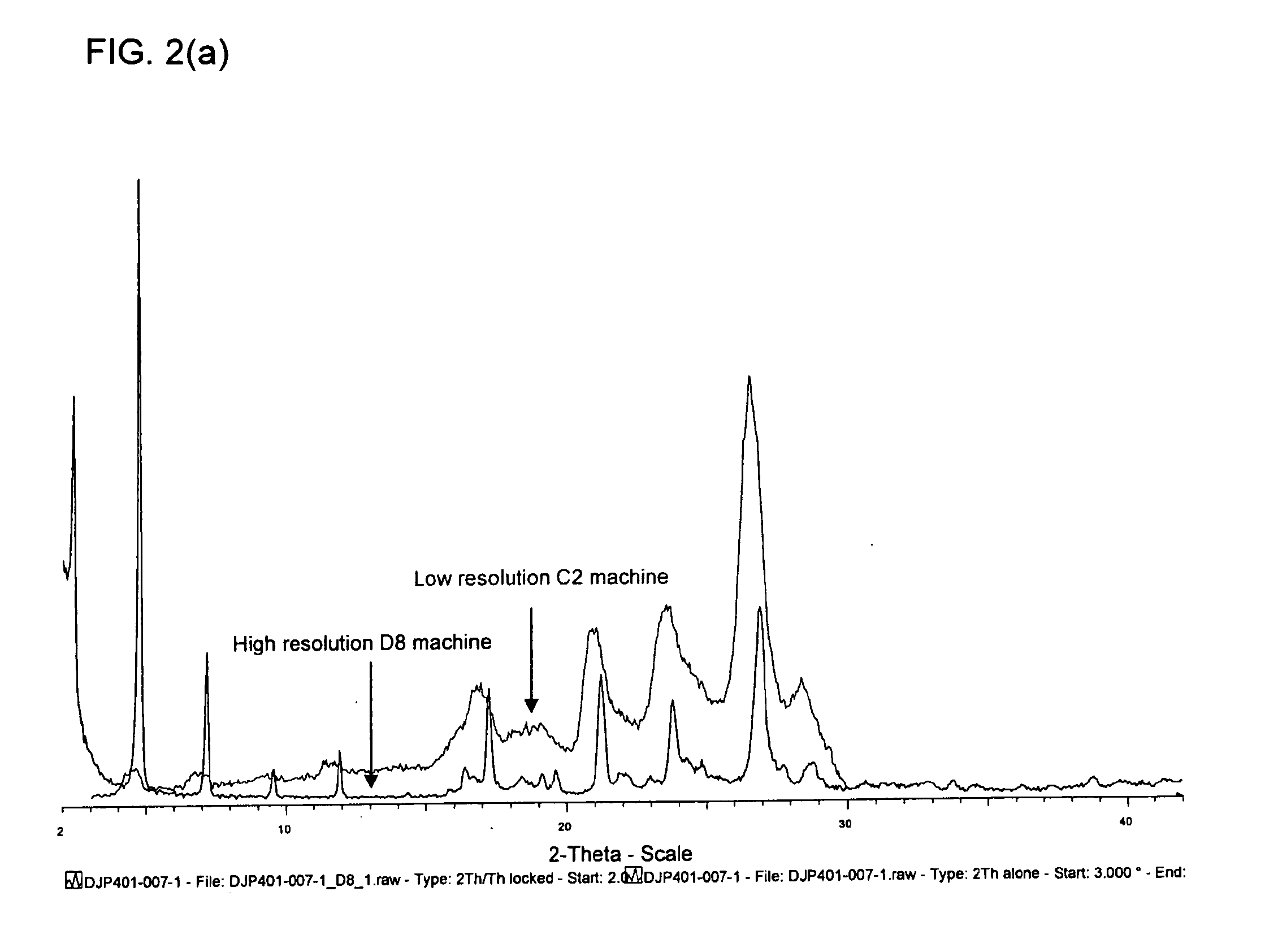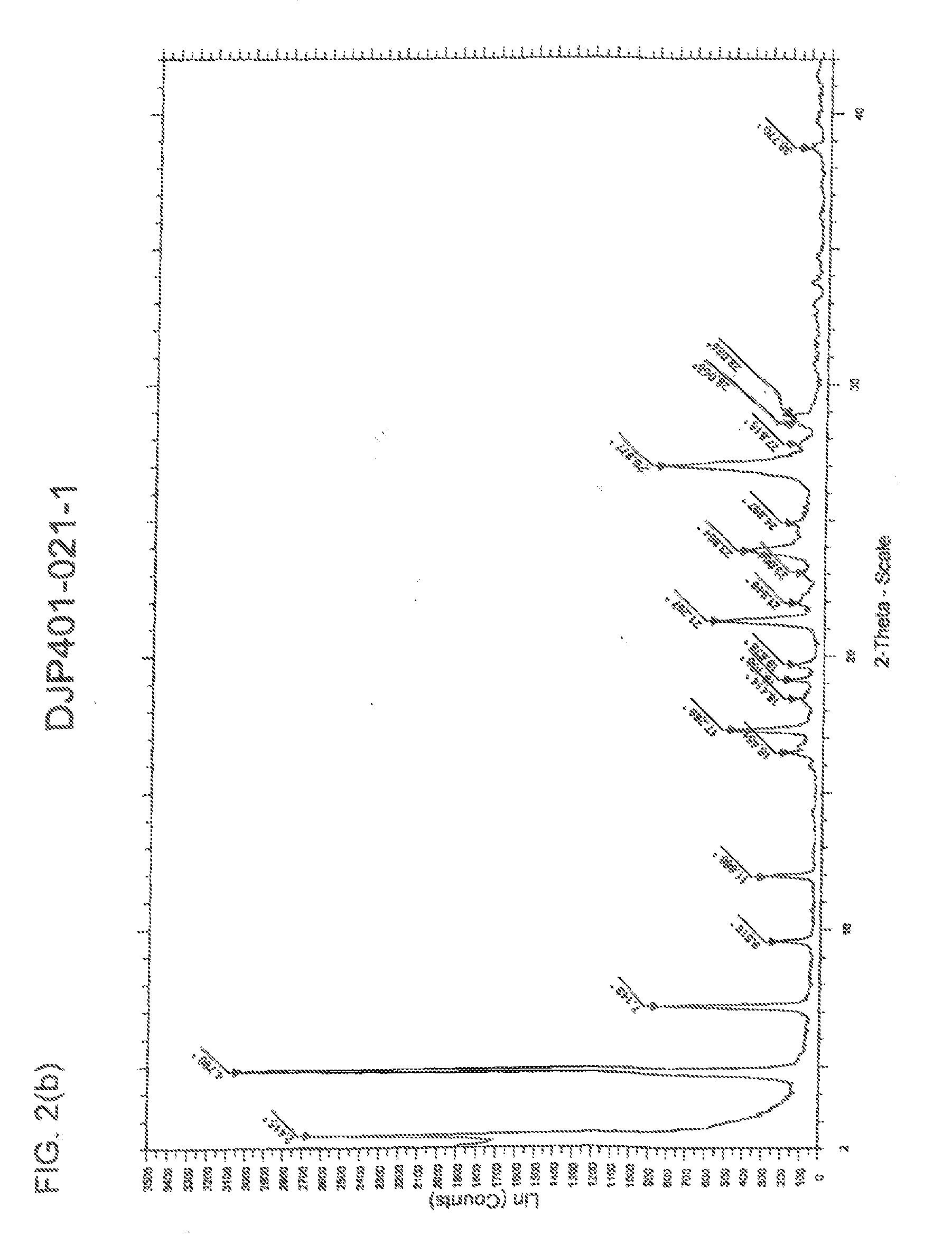Diyne Compositions
- Summary
- Abstract
- Description
- Claims
- Application Information
AI Technical Summary
Benefits of technology
Problems solved by technology
Method used
Image
Examples
example 1
[0708]This example describes the characterisation of (Z)-14-(furan-2-yl)tetradeca-9-en-11,13-diynoic acid (herein after in this example designated “the material”).
[0709]An X-Ray Powder Diffraction (XRPD) analysis was performed to determine crystallinity of the material. X-Ray Powder Diffraction patterns were collected on a Siemens D5000 diffractometer using Cu Kα radiation (40 kV, 40 mA), θ-θ goniometer, divergence of V20 and receiving slits, a graphite secondary monochromator and a scintillation counter. The software used for data collection was Diffrac Plus XRD Commander v2.3.1 and the data were analysed and presented using Diffrac Plus EVA v 11.0.0.2 or v 13.0.0.2.
[0710]Samples run under ambient conditions were prepared as flat plate specimens using the material. Approximately 35 mg of the sample was gently packed into a cavity cut into polished, zero-background (510) silicon wafer. The sample was rotated in its own plane during analysis. The details of the data collection are:
An...
example 2
[0719]Bases used for preparation of salts of (Z)-14-(furan-2-yl)tetradeca-9-en-11,13-diynoic acid are shown in Table 3.
TABLE 3BaseClasspKaSolution.Potassium ethoxide114.001M EtOHSodium ethoxide114.001M EtOHL-Arginine113.200.5M H2OL-Lysine110.790.5M H2OAmmonium hydroxide19.272M EtOHDimethylaminoethanol18.831M EtOHN-Methylglucamine18.031MH2O
[0720]Several of the bases employed were only soluble in water and water miscible solvents were therefore employed. To this end the use of IPA, Dioxane, EtOH and acetone were selected.
[0721](Z)-14-(furan-2-yl)tetradeca-9-en-11,13-diynoic acid (25 mg) was dissolved in solvent (250 μl, 10 volumes) and the mixture warmed to 50° C. The base solution was added (1.1 eq) and the reactions were then allowed to cool. Reactions that did not produce any solid were allowed to cool to 18° C. and if no solid had formed they were then allowed to slowly evaporate.
[0722]The results using IPA as solvent are shown in Table 4
TABLE 4Cool -Evapo-ExperimentBaseRT18° C.ra...
example 3
[0742]The example describes attempts to prepare crystalline sodium, arginine or lysine salts of (Z)-14-(furan-2-yl)tetradeca-9-en-11,13-diynoic acid.
[0743]Free acid (300 mg) was suspended in water (30 ml) and 1 eq of base was added. After 5 minutes of stirring, a clear solution was obtained. The solution was frozen and dried via lyophilisation. For the maturation of the amorphous sodium, arginine and lysine salts approximately 10 mg of the amorphous salt was treated with 200 μl of solvent and then placed in a maturation chamber that cycled between 50° C. and ambient with four hours spent under each condition. The experiments were maturated for four days and then any solids produced were analyzed by XRPD. The results are shown in Table 8 (sodium salt), Table 9 (arginine salt) and Table 10 (lysine salt).
TABLE 8ExperimentSolventObservationDJP401-022-1Ethyl acetateAmorphousDJP401-022-2Isopropyl acetateAmorphousDJP401-022-3EthanolAmorphousDJP401-022-4MethanolIn solutionDJP401-022-5IPAAmo...
PUM
| Property | Measurement | Unit |
|---|---|---|
| Temperature | aaaaa | aaaaa |
| Temperature | aaaaa | aaaaa |
| Temperature | aaaaa | aaaaa |
Abstract
Description
Claims
Application Information
 Login to View More
Login to View More - R&D
- Intellectual Property
- Life Sciences
- Materials
- Tech Scout
- Unparalleled Data Quality
- Higher Quality Content
- 60% Fewer Hallucinations
Browse by: Latest US Patents, China's latest patents, Technical Efficacy Thesaurus, Application Domain, Technology Topic, Popular Technical Reports.
© 2025 PatSnap. All rights reserved.Legal|Privacy policy|Modern Slavery Act Transparency Statement|Sitemap|About US| Contact US: help@patsnap.com



